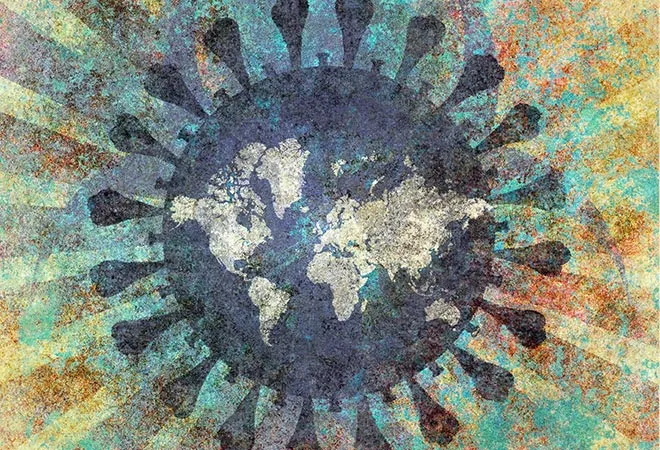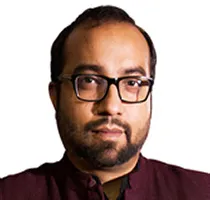-
CENTRES
Progammes & Centres
Location
If rich nations want to preserve the liberal order, they must invest in the institutions that can help poorer countries survive this crisis.

This pandemic is the first truly global crisis since China began to challenge the liberal order that has underpinned global cooperation since World War II. It is primarily a public health challenge, yes. But, whether we like it or not, it’s also a geopolitical contest.
Chinese leaders know this. That’s why they have publicized their shipments of masks and other equipment to various countries, even if some products have turned out to be faulty. It is also why senior diplomats and propaganda outlets have tried to push conspiracy theories that the virus did not emerge from Wuhan, or even from China at all.
Western countries have done themselves no favors with their fumbling responses to the crisis. They can still shore up a Western-friendly global order, though, if they look beyond their own borders.
That’s not, to say the least, what they’re currently doing. U.S. leaders have passed a $2 trillion recovery package of which only $1.15 billion, or 0.05% , is earmarked for international spending. As one Washington Post columnist pointed out, that’s “about the same amount the bill gives just to Amtrak.”
This borders on criminal neglect. When the leaders of G-20 nations spoke to each other last week, they also heard from the new head of the International Monetary Fund, Kristalina Georgieva, who asked for the Fund’s emergency financing to be doubled and for an additional Special Drawing Right allocation to protect vulnerable countries’ reserves.
The need is acute. Almost half of the IMF’s members have already asked for financial assistance; Georgieva has said that developing nations are going to require $2.5 trillion. Outflows from emerging markets have hit record levels—$83 billion since the pandemic hit, according to Georgieva. Dollars are in scarce supply for emerging markets in particular since the Federal Reserve’s swap lines are reserved for a privileged few. Not even India’s central bank satisfies whatever criteria the U.S. has in mind.
Thanks to the stunning capital outflows, the sovereign debt of more than a dozen countries is now trading at distressed levels. Unsurprisingly, African foreign ministers have asked for the waiver of $44 billion of interest payments over the coming year. The World Bank and the IMF agree that debt payments must be suspended for those countries under the most pressure. As Carmen Reinhart and Ken Rogoff point out, it is ridiculous for countries to work out debt moratoriums for individuals and small businesses domestically but continue to press the developing world for debt payments.
If rich nations don’t act soon, China will have another opening. Take Ecuador, whose dollar yields have hit record levels. Yields soared after its legislature called on the government to stop debt payments “to prioritize the coronavirus crisis.” Not only is Ecuador already in negotiations with China over the relatively small fraction of its debt owed to Beijing, its deputy finance minister has claimed that the country is hoping for a $2 billion line of credit from Chinese banks.
Of course, this is precisely why some worry about debt relief. Who knows how much hidden debt there is to China on a country’s books? The IMF shouldn’t help out emerging nations only to see the money drain away to Chinese bondholders. Any assistance should be conditioned on complete transparency about who is being paid and why.
But assistance there must be. The fight against the coronavirus is akin to a world war. Those fighting it will need temporary lending and then long-term reconstruction aid—which means finance. And the best means to provide such aid is through the institutions set up precisely for that purpose after the last global war—multilateral agencies such as the World Bank, Asian Development Bank and the IMF. They need to be funded and they need to be empowered. (They also need to be independent. The World Health Organization is becoming the target of global mockery for its apparent kowtowing to Beijing’s line. That is a disease that must not be allowed to spread to other agencies.)
The economist Arvind Subramanian argues that, in this crisis, it’s up to multilateral institutions to become the “committee to save the world.” The World Bank in particular must set up a purchase commitment for coronavirus-fighting medical equipment, allowing producers everywhere to invest in creating tens of millions of test kits and masks with some level of confidence.
This is the moment where we can make it clear that the current system is stable and inclusive enough to see the global economy through a massive crisis. If these institutions do save the world, they’ll save the liberal order along with it.
This commentary originally appeared in Bloomberg.
The views expressed above belong to the author(s). ORF research and analyses now available on Telegram! Click here to access our curated content — blogs, longforms and interviews.

Mihir Swarup Sharma is the Director Centre for Economy and Growth Programme at the Observer Research Foundation. He was trained as an economist and political scientist ...
Read More +